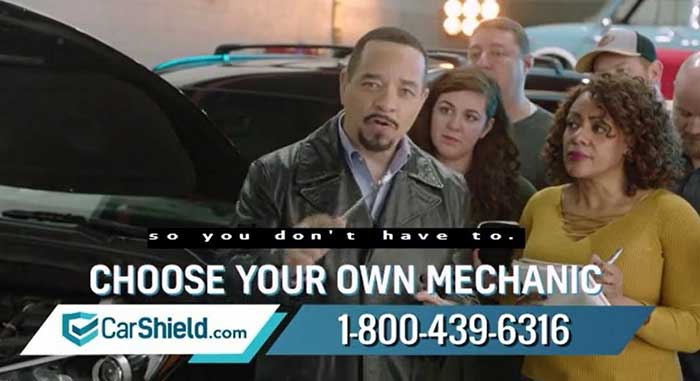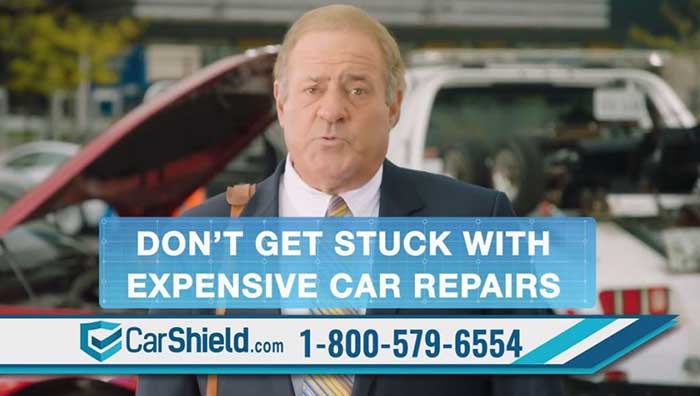CarShield Will Pay $10 Million to Settle Deceptive Advertising Charges
Last updated September 5, 2024
Vehicle-service-contract company CarShield will change its business practices and pay a $10 million monetary judgment to resolve deceptive advertising charges brought by the Federal Trade Commission (FTC) against its parent company, NRMM, LLC.

Listen to audio highlights of the story below:
In its complaint filed on July 31, the FTC said the advertising and telemarketing used by CarShield and American Auto Shield (the administrator of CarShield’s vehicle service contracts) were “deceptive and misleading.” The FTC also alleged that CarShield’s celebrity and consumer endorsers “made false statements” in the company’s ads.
As we reported a few years ago, while we advise against purchasing any type of service contract, our review of policies and the complaints filed against CarShield and dozens of other warranty sellers indicates their products are especially lousy buys. These companies commonly use misleading marketing to scare consumers into paying thousands for their products and then, if you actually need repairs, go to great lengths to avoid paying for them.
CarShield’s ads and marketing materials promised that for between $80 and $120 a month (that’s $960 to $1,440 a year), its service contracts would provide “peace of mind” and “protection” from expensive car repairs once the covered vehicle’s manufacturer’s warranty ended. While CarShield’s ads made it seem like the company would pay for all necessary repairs, thousands of customers complained that they hit roadblocks when they had car trouble and filed claims, the FTC alleged.
The stipulated order settling the complaint, which still must be approved by the court, bars CarShield from making deceptive or misleading statements in the future, and requires the company to ensure endorser testimonials are “truthful, accurate, and not deceptive.” The company will also pay $10 million to refund customers who were defrauded by its actions.
“Instead of delivering the ‘peace of mind’ promised by its advertisements, CarShield left many consumers with a financial headache,” said Samuel Levine, director of the FTC’s Bureau of Consumer Protection. “Worse still, CarShield used trusted personalities to deliver its empty promises.”
CarShield assured customers that they were not required to use the company’s Shield Repair Network, but could take their car to their favorite mechanic or car dealer for repairs.
According to the FTC, the company was “falsely promising” customers they could use the repair shop of their choice. In reality, that was often difficult to do, even for those who took their cars to facilities advertised as members of the Shield Repair Network.
“CarShield shielded consumers from the truth about limitations of its vehicle service contracts, the FTC said in a blog post. “Many consumers who paid big money for vehicle service contracts were left holding the bag—and paying the bill—for pricey repairs the defendants had led them to believe would be covered.”
The blog post included these quotes from complaints the FTC received: “Everyone laughs when I ask if they accept CarShield as coverage,” one wrote. Another reported, “[I] called around, no shop within reasonable distance will accept CarShield. Answer from each shop has been ‘no, because they don’t pay their bill.’”
Even when customers found repair shops willing to accept their CarShield coverage often complained that American Auto Shield invoked various exclusions not clearly disclosed in the ads or by CarShield’s telemarketers. In fact, the FTC noted, “none of CarShield’s service contracts cover all repairs or even repairs to ‘covered’ vehicle systems.”
CarShield also touted plans that paid for a rental car while a customer’s car was in the shop, but American Auto Shield only approves a rental car after it has authorized a repair claim, which often takes days or weeks, the FTC noted. Also, reimbursement is limited to a maximum number of days and cost per day, regardless of how long the repair takes and the actual cost of the rental car.
Misleading Celebrity and Consumer Testimonials
CarShield ads featured well-known celebrities and professional athletes, including actors Ice-T, Vivica A. Fox, Adrienne Janic, and Ernie Hudson, sportscaster Chris Berman, basketball star Allen Iverson, pro wrestler Rick Flair, and baseball players Walker Beuhler, Peter Alonso, and Matt Vierling—all were represented as “customers” or “real CarShield Customers.” In fact, the FTC complaint alleged they were not actual customers and had never used a CarShield vehicle service contract.

Consumer testimonials featuring customers who said they’d saved thousands of dollars with CarShield were also “misleading,” the FTC said, because those customers did not save as much as they claimed.
As part of the proposed settlement, the company will ensure all testimonials are truthful and accurate. It has also agreed to be monitored for compliance for up to 10 years.
In a statement on its website, CarShield said it “disagreed” with many of the assertions made by the FTC but noted that its marketing now includes “additional details about the elements of car repair typically covered and direct potential customers to our website, where full plans are easily viewed prior to making a purchase decision.”
The company also said it had “significantly expanded” its Shield Repair Network by adding more than 10,000 preferred car repair shops, and created a concierge system to help customers quickly locate a repair facility convenient for them.
What About the BBB?
Despite thousands of complaints and the legal action taken by the FTC more than a month ago, the company still has an “A” rating with the Better Business Bureau.
The BBB’s online report on CarShield shows 3,298 complaints closed in the last 3 years. And unhappy customers are still complaining about repairs that aren’t covered or service work that wasn’t paid for. Based on 2,777 customer reviews, the company has a rating of 1.79 out of 5 stars. For some reason, the BBB report does not list the settlement with the FTC.
Checkbook asked the Better Business Bureau of Greater St. Louis (CarShield’s headquarters are in St. Peters, Mo.), about this. The bureau told us it could not comment at this time because of “pending litigation with BBB St. Louis and CarShield.”
In 2021, the St. Louis BBB published a report about the vehicle service contract industry, noting that it “has long been a source of consumer dissatisfaction.” The bureau said it processed more than 15,000 complaints against 80 different vehicle service contract companies located in its region between 2018 and 2020. During that three-year period, CarShield was responsible for nearly 60 percent of those complaints.
More From Checkbook:
Vehicle Service Contract Plans Are Big Hassles and Bad Deals for Most Drivers
How to Get the Best Price on a New Car
Consumerpedia podcast, episode #63: The Car Show 2024
Consumerpedia podcast, episode #64: EV Update 2024
Contributing editor Herb Weisbaum (“The ConsumerMan”) is an Emmy award-winning broadcaster and one of America's top consumer experts. He has been protecting consumers for more than 40 years, having covered the consumer beat for CBS News, The Today Show, and NBCNews.com. You can also find him on Facebook, Twitter, and at ConsumerMan.com.


